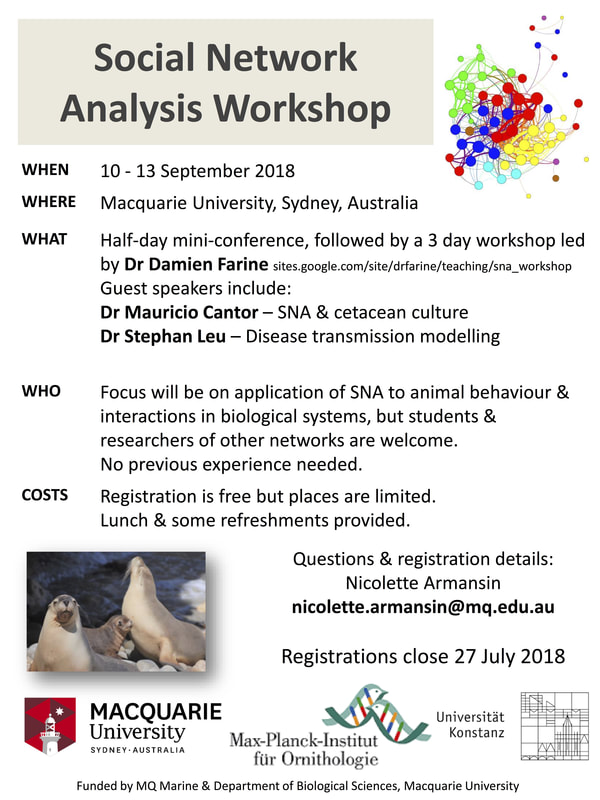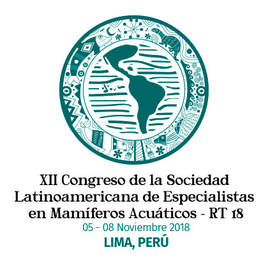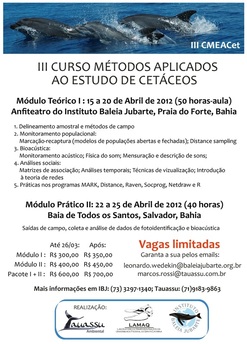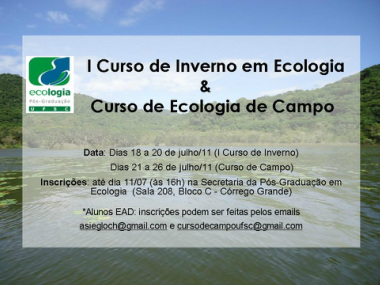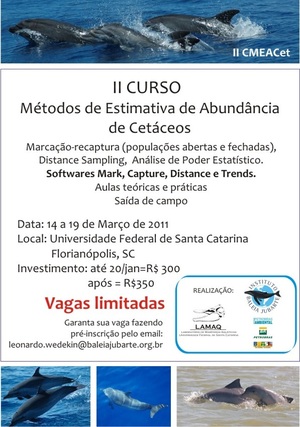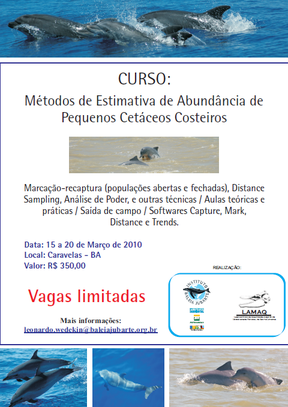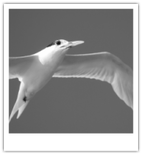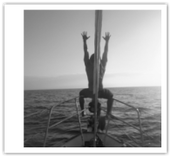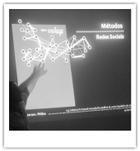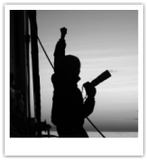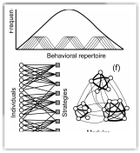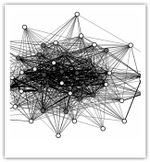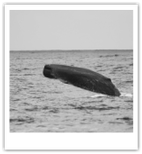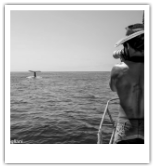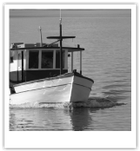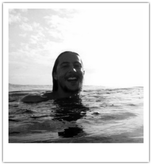University teaching: courses at the graduate level
- CANTOR, M. FW566: Behavioral Ecology of Marine Animals. 3-credit course for graduate program in Wildlife Sciences at the Oregon State University, Hatfield Marine Science Center, Newport, Oregon USA. Fall 2023, Oct 02 to Dec 11 2023
- Arbuckle, S., CANTOR, M. FW526: Coastal Ecology and Resource Management. 5-credit slash course for graduate degree in Wildlife Sciences, at the Oregon State University, Hatfield Marine Science Center, Newport, Oregon USA. Fall 2023, Sep 14 to Dec 13 2023
- Arbuckle, S., CANTOR, M. FW526: Coastal Ecology and Resource Management. 5-credit slash course for graduate degree in Wildlife Sciences, at the Oregon State University, Hatfield Marine Science Center, Newport, Oregon USA. Fall 2022, Sep 14 to Dec 14 2022.
- CANTOR, M. FW599: Social Ecology of Marine Megafauna. 3-credit (90h) slash course for graduate program in Wildlife Sciences at the Oregon State University, Hatfield Marine Science Center, Newport, Oregon USA. Session 5, Summer, Aug 15 to Sep 2nd 2022.
- Co-taught Seminar Series in Fisheries, Wildlife and Conservation Sciences. Brander S., CANTOR, M. Oregon State University. (Jan - Mar 2022).
- Co-taught field course in Coastal and Terrestrial Ecology at the Graduate Program in Ecology, Universidade Federal de Santa Catarina, São Francisco do Sul, SC, Brazil. (Oct 25-29, 2018).
- Floeter, SR, Quimbayo, JP. CANTOR, M. Full course at the Graduate Program in Ecology, Universidade Federal de Santa Catarina (Aug 2018). Scientific communication (32h). Florianópolis, SC, Brazil.
- Floeter, SR, CANTOR, M., Quimbayo, J.P. Full course at the Graduate Program in Ecology, Universidade Federal de Santa Catarina (Aug 2018). Biogeography and Macroecology of Marine Biota (32h). Florianópolis, SC, Brazil.
- CANTOR, M. Full course the Graduate Program in Coastal and Oceanic Systems, Universidade Federal do Paraná (Feb 19-23, 2018). Introduction to methods and models in animal social structures (30h). Pontal do Sul, PR, Brazil.
- Co-taught field course in Coastal and Terrestrial Ecology at the Graduate Program in Ecology, Universidade Federal de Santa Catarina (Nov 7-12, 2017).
- Floeter, SR & CANTOR, M. Full course at the Graduate Program in Ecology, Universidade Federal de Santa Catarina (Aug 1-10, 2017). Scientific communication (32h). Florianópolis, SC, Brazil.
- CANTOR, M. Full course the Graduate Program in Biology and Evolution, Universidad de Chile (March 13-17, 2017). Animal social structure: introduction to methods and models (40h). Santiago, Chile.
University teaching: courses at the undergraduate level
- CANTOR, M. FW466: Behavioral Ecology of Marine Animals. 3-credit course for undergraduate course in Marine Studies Initiative at the Oregon State University, Hatfield Marine Science Center, Newport, Oregon USA. Fall 2023, Oct 2 to Dec 11 2023.
- Arbuckle, S., CANTOR, M. FW426: Coastal Ecology and Resource Management. 5-credit slash course for undergraduate degree in Fisheries and Wildlife Sciences, at the Oregon State University, Hatfield Marine Science Center, Newport, Oregon USA. Fall 2023, Sep 14 to Dec 13 2023.
- Arbuckle, S., CANTOR, M. FW426: Coastal Ecology and Resource Management. 5-credit slash course for undergraduate degree in Fisheries and Wildlife Sciences, at the Oregon State University, Hatfield Marine Science Center, Newport, Oregon USA. Fall 2022, Sep 14 to Dec 14 2022.
- CANTOR, M. FW499: Social Ecology of Marine Megafauna. 3-credit (90h) slash course for undergraduate degree in Marine Studies Sciences, at the Oregon State University, Hatfield Marine Science Center, Newport, Oregon USA. Session 5, Summer, Aug 15 to Sep 2nd 2022.
- CANTOR, M. Conservation of Natural Resources. Mar – Dec, 2018 (10h/week). Full course taught at the undergraduate degree in Civil Engineering, Universidade Federal de Santa Catarina, Florianópolis SC Brazil. [5 Classes]
- CANTOR, M. Basic Population Ecology. Mar – Dec, 2018 (10h/week). Full course taught at the undergraduate degree in Biological Sciences, Universidade Federal de Santa Catarina, Florianópolis SC Brazil. [4 classes]
Guest lectures in graduate and undergraduate courses
- CANTOR, M. guest lecture: social ecology of marine animals; 30min at FW302 Conservation of Marine Mammals, Oregon State University, Jul 13 2022
- CANTOR M, 2022. Foraging synchrony drives resilience in human-dolphin mutualism. Universidade Federal de Santa Catarina. Ecology Seminars
- CANTOR, M., Barneche D.R., Dias, M. 2022. Academic productivity for early-career researchers (2h), Graduate Program in Ecology, Universidade de Brasilia, UnB, Brazil. February 03 2022.
- CANTOR, M. Whales, Behaviour, Conservation (2h), in: Baker, S.C. The Natural history of whales and whaling, Oregon State University, Newport, USA. November 29 2021.
- Souza-Lima, R., CANTOR, M. Ecological Bases of Behaviour (8h), Programa de Pós-Graduação em Psicobiologia, Universidade Federal do Rio Grande do Norte, Brazil, August 22 2020.
- Game theory and Stable Evolutionary Strategies in Behavioural Ecology. Graduate course in Behavioural Ecology. . Graduate Program in Ecology, Universidade Federal de Santa Catarina, Brazil. October 18-20, 2017
- Population dynamics: basic concepts. IIV Winter Course in Ecology. Universidade Federal de Santa Catarina, Brazil. July, 2017.
- Society and culture among sperm whales: causes, consequences, and stability of vocal clans. Course: Introduction to the Biology of Aquatic Mammals. Undergraduate course in Biological Sciences, Universidade Federal de Santa Catarina, Brazil. June 13 2017
- Biological interactions: from patterns to processes and back. Course: Seminaries in Ecology. Graduate Program in Ecology, Universidade Federal de Santa Catarina, Brazil. April 17 2017
- Animal social networks: an introduction. Course: Cutting Edge in Marine Science. Dalhousie University, Halifax, Canada. March 2016.
- Population dynamics. I Winter Course in Ecology. Universidade Federal de Santa Catarina, Brazil. Set, 2011.
- Cetacea: Some steps in academic research. Course: Marine Ecology. Universidade Federal de Santa Catarina, Brazil. May, 2010.
- Cetacean research and conservation in Brazilian waters. Course: Biological Sciences. Universidade Estadual de Campinas, Brazil. November, 2008.
Workshops
- Workshop: Sperm whales of the Pacific. Lecture: Social network analyses. Nov 14-16 2022, virtual
- Workshop: 8h course. Introduction to analytical methods for studying animal social structures. XXXIX Encontro Anual de Etologia, Curitiba, Brazil. Nov 1 2022
- Workshop: 8h course. Introduction to analytical methods for studying animal social structures. XXXIX Encontro Anual de Etologia, Curitiba, Brazil. Nov 1 2022
Workshop Australia 2018: Social Network Analysis
Workshop Peru 2018: Introduction to analytical methods for studying marine mammal social structures
|
XII Congreso de la Sociedad Latinoamericana de Especialistas en Mamíferos Acuáticos - RT 18
CANTOR, M. Día: Domingo 04 de Noviembre Duración del taller: 8 horas Precio del taller: $ 50 USD Vacantes: máximo 30 personas Resumen General y objetivos del workshop: Different marine mammal social structures usually emerge from the trade-offs implied by living in groups. These structures summarize the the nature, quality and patterning of the social relationships among individuals. Yet, detecting these patterns, and their underlying mechanisms, can be challenging without the proper tools. This workshop will provide an overview of the statistical toolbox used to study animal societies. The goal is to introduce researchers and undergraduate and graduate students to the basic, but current, analytical methods for describing and testing hypotheses on animal social structures. Marine mammals are an exciting study model due to their behavioural diversity and flexibility. However, since it is usually challenging to observe their behavioural interactions underwater, the typical dataset comprise individually identified animals in groups over time. We will learn how to describe social structures from such data using classic and recent analytical methods, such as similarity matrices, network theory, model fitting, null models and randomization procedures. The workshop will be composed by 20-min lectures followed by hands-on working sessions where participants will learn to apply the techniques to their own data using open-source software. More info and registration HERE |
Workshop Chile 2017: Animal Social Structures: an Introduction to Methods and Models
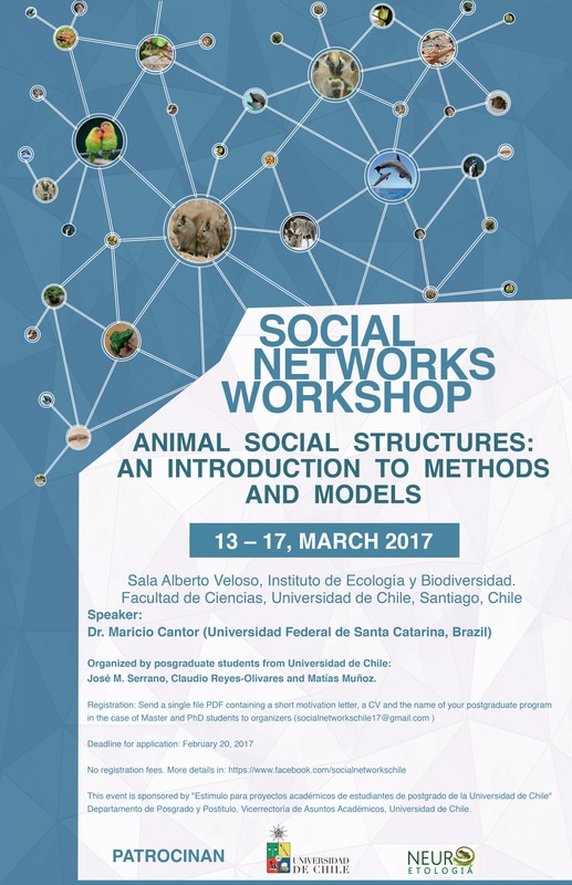
Sponsorship (which made the workshop free for all participants, thank you very much!)
Estímulo para proyectos académicos de estudiantes de posgrado de la Universidade de Chile Departamento de Posgrado y Postulo, Vicerreitoria de Assuntos Académicos, Universidade de Chile |
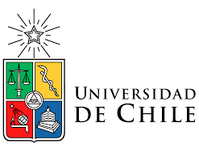
Programa de Doctorado en Ecología y Biología Evolutiva, Universidad de Chile
Location: Santiago, Chile Sala Alberto Veloso, Instituto de Ecología y Biodiversidad, Faculdade de Ciencias, Universidade de Chile Date: 13-17 March 2017 (32h) Check out the Participants' feedback This workshop was kindly organized by the grad students of the Universidad de Chile (thank you very much!) José M. Serrano, Claudio Reyes-Olivares, Matias Muñoz |
South Africa Workshop (2015): Animal Social Structures: Introduction to Methods and Models
CANTOR, M.
|
November 23 to 27, 2015 (36 h)
Oceans Research Mossel Bay, South Africa This workshop offered an introduction to the study of social structures of animals. Different animal social generally emerge from the trade-offs of group living, influenced by ecological factors and tethered by evolutionary pathways. In practice, the social structure of a population comprises the nature, quality and patterning of the social relationships among its members. Long-term studies now provide the necessary data one needs to unravel the social structure of individually identified animals in groups. During this workshop we explored many of the classic and recent statistical techniques to portray the structure of an animal society, including multivariate statistics, network theory, model fitting and selection, null models and randomization procedures. The audience comprised graduate students (MSc and PhD candidates) and professionals (post-docs and researchers). Participants's feedback; videos |

|
III Course on applied methods for the study of cetaceans: social, population and bioacoustic analyses (2012)
Wedekin, L.L., CANTOR, M., Rossi-Santos, M.R.
|
Theoretical Module: April 15th to 20th 2012 (50 h)
Instituto Baleia Jubarte Praia do Forte, BA, Brazil The third edition of this course was composed by theoretical classes and exercises with free softwares (R, SOCPROG, Distance, MARK) on three different themes: bioacoustics, social organization and population dynamics using cetacean real data. I taught the social analyses (20h) |
Practical Module: April 21th to 25 2010 (40h)
Instituto Mamíferos Aquáticos (IMA) Baia de Todos os Santos, Salvador, BA, Brazil After the first week, we spent five days at the Todos os Santos Bay, in Salvador BA, collecting photo identification and bioacoustic data. During the nights we organized the data and performed preliminary analyses. This part was done in collaboration with IMA. |
Animal social organization: methods and models (2012)
CANTOR, M.
|
April 3rd to 4th 2012
Projeto Boto-Cinza Instituto de Pesquisas Cananéia (IPeC) Cananéia, SP, Brazil I taught a two-day course (20h) on statistical analyses for studying animal social structures at the NGO IPeC. The course was composed by theoretical classes and practical exercises with the free softwares SOCPROG, R and NETDRAW. |
|
II Course on methods for estimating population parameters of cetaceans (2011)
Wedekin L., Daura-Jorge, F.G., CANTOR, M.
|
March 14th to 19th 2011
Universidade Federal de Santa Catarina Florianópolis, SC, Brazil |
My participation in the second edition of this course was teaching 10 hours of theoretical and practical classes on closed population mark-recapture models using MARK and CAPTURE softwares.
|
I Course on methods for estimating population parameters of cetaceans (2010)
Wedekin L., CANTOR, M., Daura-Jorge, F.G., Rossi-Santos, M.
|
March 15th to 20th 2010
Marine National Park of Abrolhos Caravelas, BA, Brazil. |
In the first edition of the course I taught 4 theoretical and practical classes on closed population capture-recapture models, using the software CAPTURE and MARK (14 hours)
|
Teaching Assistance
- CANTOR, M. Teaching assistant and demonstrator (2014). Analysis of Biological Data (undergraduate and graduate). Dalhousie University, Halifax, Canada. Sep-Dec 2014
- Baker, L. & CANTOR, M. Teaching assistant (2013). Analysis of Biological Data (undergraduate and graduate). Dalhousie University, Halifax, Canada. Sep-Dec 2013
- CANTOR, M. Teaching Assistant, undergraduate course: Introduction to the Biology of Marine Mammals, Universidade Federal de Santa Catarina Brazil. Mar-May 2010.
- CANTOR, M. Teaching Assistant, undergraduate course: Animal Ecology. Universidade Estadual de Campinas, Brazil. Aug-Dec 2008.
- CANTOR, M. Teaching Assistant, undergraduate course: Introduction and Methods in Zoology. Universidade Estadual de Campinas, Brazil. Mar-Jul 2007.
- CANTOR, M. Teaching Assistant, undergraduate course: Botany 101, Universidade Estadual de Campinas, Brazil. Mar-Jul 2003.
Teaching internships at elementary and high school level
- Teaching internship in Natural Sciences, Elementary School Profa. Dora Maria Maciel de Castro Kanso, Campinas, SP, Brazil. Mar-Jun 2006
- Teaching internship in Biology, High School Professor Aníbal de Freitas, Campinas, SP, Brazil. Ago-Oct 2006
Home
|
Academic Record
|
Publications
|
Professional
|
Projects
|
